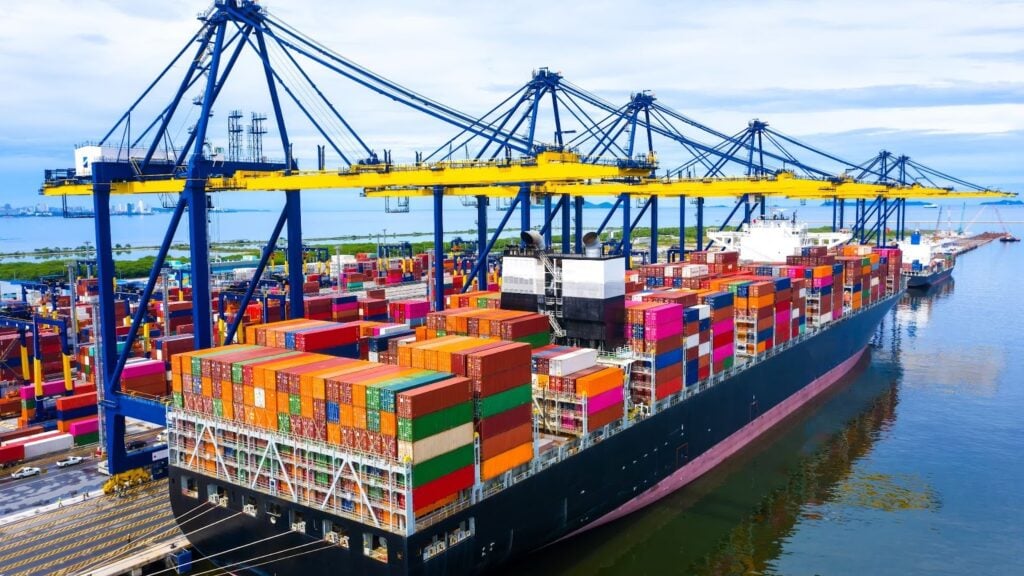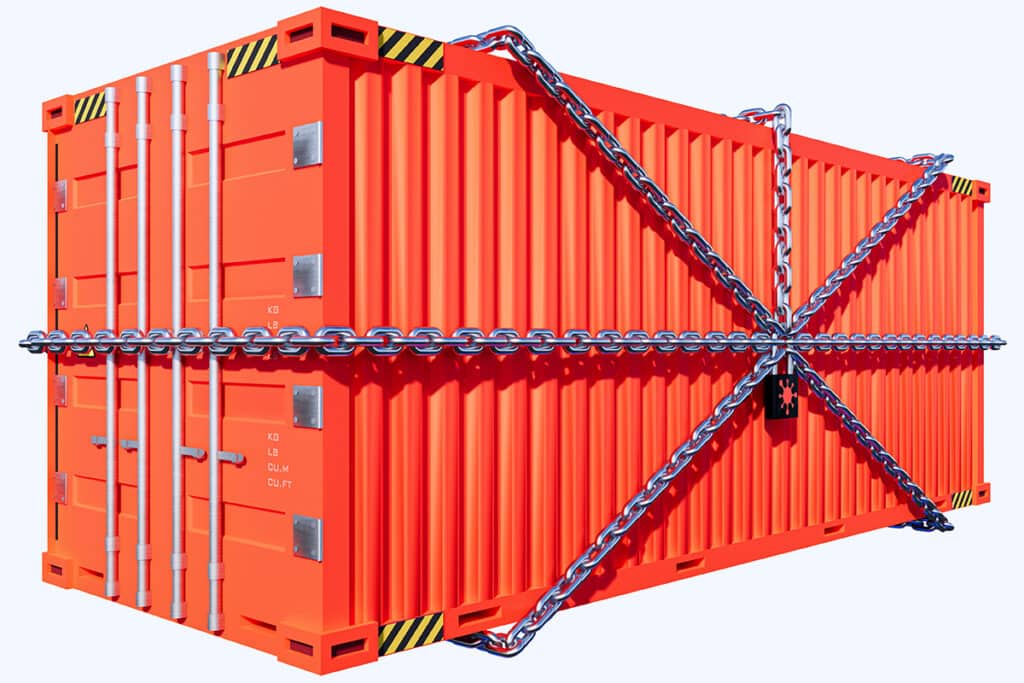Articles
Global Trade Management

4 Keys to Successful Trade Compliance
Geopolitical risks to supply chains are top of mind across C-suites but few say what it means. The term “geopolitical risk” has largely become a codeword for import, export, and economic sanctions compliance. The fast pace of change in 2025 requires adopting meaningful compliance structures that achieve results.
Read More
Received for Shipment Bill of Lading: Definition, How It Works, and Importance
Received for Shipment: Definition, How It Works, and Importance Understanding the concept of ‘Received for Shipment’ is important in the shipping industry. This notation indicates that the carrier has received the cargo at the port facility for loading onto a specific vessel or voyage and serves to acknowledge receipt of the items for shipment. […]
Read More
North America: Navigating Cross-Border Trade
U.S.-based companies are looking to master cross-border trade in North America—amidst supply chain upheavals, rising production costs in many other parts of the world, and a strengthening initiative to produce closer to primary markets.
Read More
Global Trade Compliance: How to Play by the Rules
Complex government requirements will create new impacts for many shippers in 2024. Which rules and regulations affect your business, and what steps should you take right now to comply?
Read More
Are You Prepared for New Regulations?
Those of us who hoped we’d quickly get back on track after the notoriously shaky supply chains of 2020 and 2021 have been left wanting. A confluence of factors has come together to create further disruption across global supply chains, with some poised to only get worse.
Read More
No Place for Technophobes: Technologies Streamline Global Trade
They used to be just trendy buzzwords, but artificial intelligence (AI) and blockchain are now poised to have a transformative impact on global supply chain management. If you’ve been shying away from these technologies, it may be time to consider their potential.
Read More
20 Leading Global Trade Management Systems Providers in 2023
Global trade management systems (GTMS) are some of the best tools that commerce businesses can use. Regardless of the industry, they’re valuable in assisting with international trade. There are dozens of GTMS available, but not all of them are leaders in the industry. Below you’ll find 20 leading global trade management systems providers. What Are […]
Read More
How to Thrive in a Global Trade Environment
Collaboration and networking are crucial to navigating the complexities of international relations and supply chain dynamics and pave the way for sustainable growth and prosperity.
Read More
Incoterms: The Good, The Bad, and The Ambiguous
Incoterms are a set of international rules that interpret the most commonly used trade terms. Applying Incoterms to sales and purchase contracts makes global trade easier and helps partners in different countries understand one another.
Read More
Preparing Now For What the Future May Bring
In 2022, it became clear that effective supply chain risk management (SCRM) is not a luxury but a necessity. The year saw numerous disruptions to global supply chains, including Russia’s invasion of Ukraine, the Log4Shell vulnerability, and concerns over rail strikes.
Read More
Ukraine War’s Supply Chain Impact
In February 2022, Russian forces invaded Ukraine. While this is a terrible humanitarian event, it also impacts the global economy. There are economic repercussions not only in Europe, but also across the globe, especially since the timing of the war was not ideal.
Read More
You’re Invited To: Bring New Trading Partners to the Party
More U.S. companies are asking a Plus One guest to join China sourcing strategies, inviting suppliers beyond the border of the world’s primary outsourcing powerhouse to the dance.
Read More
Global Trade Management Systems Guide 2023
Global trade management (GTM) systems and services are more important than ever in today’s complex and disrupted business environment. GTM solutions support the logistics, compliance, and communication aspects of import/export operations, and help manage multiple transportation modes. From resource planning and trade compliance to customs filings and data analytics, here are the providers that can help ensure your global supply chain runs smoothly.
Read MoreSouth of the Border Imports Boom
Driven by demand for boats, vehicles, vehicle parts, computer parts, and oil, Mexican imports to the United States rose 19.5% year-over-year in 2022 to reach $479.6 billion according to Mexico’s National Institute of Statistics, Geography, and Informatics. Some segments, such as motor vehicle parts, are returning to pre-pandemic levels. Additionally, data from project44 shows that […]
Read More
Overcoming Global Trade Barriers
Lockdowns, land wars, and rising costs had companies scrambling to keep sourcing intact in 2022. Is reshoring the key to unlocking international trade challenges?
Read More
Against All Odds, Trade Going Strong
“Resilient” seems to be the key word to describe global trade today. Despite myriad challenges—the aftermath of the pandemic, inflation, the war in Ukraine, a rocky stock market—global trade is persisting at strong levels, according to the latest DHL Trade Growth Atlas, published by DHL and the NYU Stern School of Business. The report maps […]
Read More
Be Prepared for the Complexities of Mexico Cross-Border Logistics
Customs and legal issues, as well as capacity trends, underline the need for a transportation and logistics partner with the knowledge and experience to make the cross-border transition seamless.
Read More
Florida Rising
The Sunshine State is strategically positioned for increased trade, even as global supply chains undergo dramatic changes. Here’s how two of its ports are supporting Florida’s ambitions and making bold moves. What is it about Florida that makes the state an ideal spot to plant or expand a business? In terms of both logistics and […]
Read More
Reshoring? Not So Fast
Reshoring might sound like the solution to the United States’ supply chain woes, but here’s why it is not a cure-all for current and future disruptions.
Read More
Transloading: The Answer to Consistency in the Global Supply Chain
Transloading can boost productivity and keep the supply chain moving. Engaging a partner like Taylored Services that fully understands this process is a necessity in today’s global market.
Read More